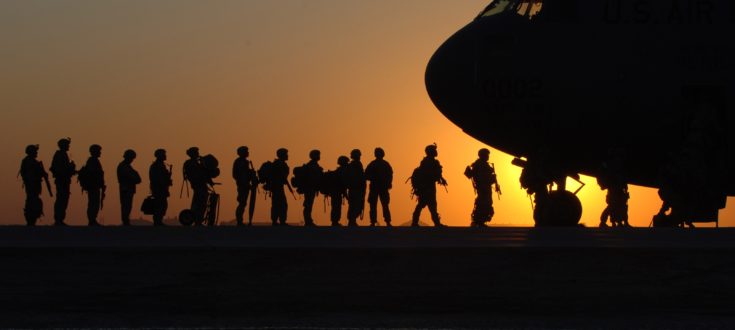Opinion: America’s Foreign Policy Can’t Just Rely on the Military

Here’s a question policy-makers concerned with national defense and America’s place in the world should be discussing right now: Do we get a better return on our investment by putting another billion dollars into the Defense Department or into the State Department?
If you think this is a simple “hawks versus doves” debate, you might be surprised to learn that Defense Secretary Robert Gates, appointed by George W. Bush, would vote to give more money to the State Department. So would Obama Secretary of Defense Leon Panetta.
These guys are certainly not doves. They would argue they are pragmatic realists who understand the potential of soft power.
“Soft power” is a term that originated with Joseph Nye of Harvard University and is now widely used within the foreign policy and defense communities. Nye defined it as “the ability to get what you want through attraction.”
It relies on attracting and persuading people and governments around the world by increasing our use of such “soft” methods as diplomacy, international broadcasting, foreign exchange programs, developmental assistance, disaster relief, and military to-military-contacts. It uses these methods to communicate internationally U.S. culture, policies and political ideals.
Advocating for increasing our expenditures on soft power is in no way a rejection of the “hard power” of our military and economic efforts. The two complement each other and have throughout our history.
What Gates and others now advocate is enhancing soft power with what he calls “a dramatic increase in spending on the civilian instruments of national security.”
The Trump administration is trying to do the exact opposite. Fortunately, there was enough bipartisan agreement in 2018 for Congress to reject the Trump proposal to cut the State Department budget 33 percent in 2018 and 29 percent in 2019.
The recent 2020 White House budget proposal calls for boosting spending to $750 billion for national defense and reducing spending for diplomacy and foreign aid to less than 5 percent of that, $40 billion. Patrick Leahy, ranking Democrat on the Senate Appropriations Committee, pronounced that idea dead on arrival, and it looks like enough Senate Republicans will again agree.
What doesn’t look likely under the current administration is that there will be a much-needed increase in budgeting for soft power.
I learned a lot about soft power before I entered the Senate, when I served for 13 years on the Broadcasting Board of Governors, the independent federal agency for all U.S. government sponsored, nonmilitary, international broadcasting. The agency, whose flagship operation is the Voice of America, oversees broadcasts in 40 different languages and has 275 million listeners, viewers, and internet users around the world every week.
In countries that do not have a free press, it provides listeners with news they would otherwise not receive. In today’s world, the only way people in countries such as Russia, China, North Korea, Iran, and many more learn the truth is through U.S. International Broadcasting.
After I left the Senate, I joined the Board of Trustees of the Institute of International Education, which administers many government and nongovernment student exchange programs. I have seen how powerful these programs are in educating so many and in building countless productive relationships around the globe.
Research shows that foreign students in exchange programs are the ones most likely to promote democracy when they return to their home countries. Is there a better way to spend a few extra national security dollars than to expose these future leaders of their countries to our free press, free speech, and other civil liberties?
One of the important ways we attain our foreign policy goals is through developmental assistance. It accounts for less than 1 percent of the total federal budget, but it is vitally important around the world.
It is especially important in Iraq, Afghanistan, and Pakistan, where developmental assistance it is an integral part of our counterinsurgency strategy, and in the Middle East, where it is a key element in the still-active Camp David Peace accords. Developmental assistance funds also provide disaster relief, which does a great deal to increase our popularity in the target countries.
Military-to-military exchanges are an important tool too. I was struck in my trips to Pakistan as a United States senator by how different our relationships were with older officers than with younger ones. Many of the older officers had warm memories of the time they spent in military exchanges in the United States.
Because those exchanges were terminated during the 1990s because of our nuclear nonproliferation sanctions on Pakistan, our relations with the younger officers who are now entering leadership roles are much less friendly.
If our almost endless involvements in Vietnam, Iraq, and Afghanistan have taught us anything, it ought to be that while it is relatively easy to initiate military action, it is extraordinarily difficult to end it. I do not argue here for a weaker military, but for a more vigorous use of the soft power we know will advance our national foreign policy goals.
To see the original post: America’s Foreign Policy Can’t Just Rely on the Military


